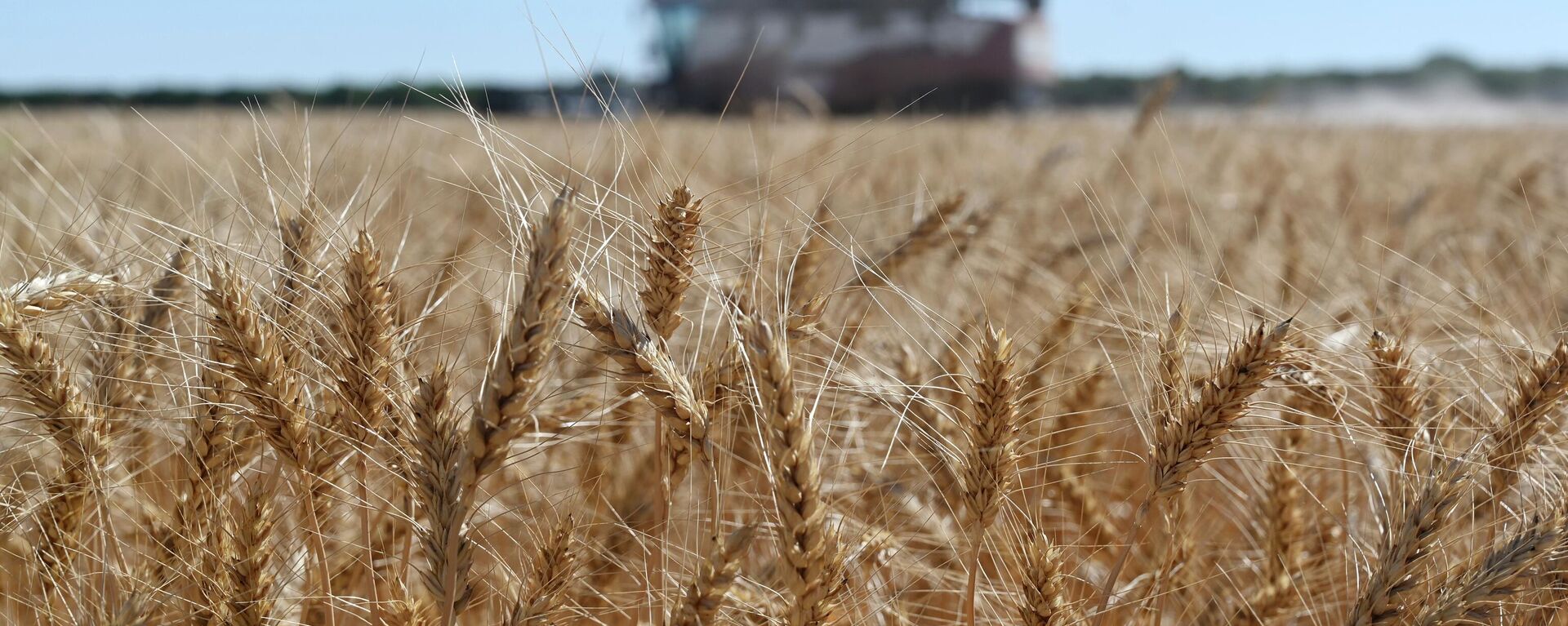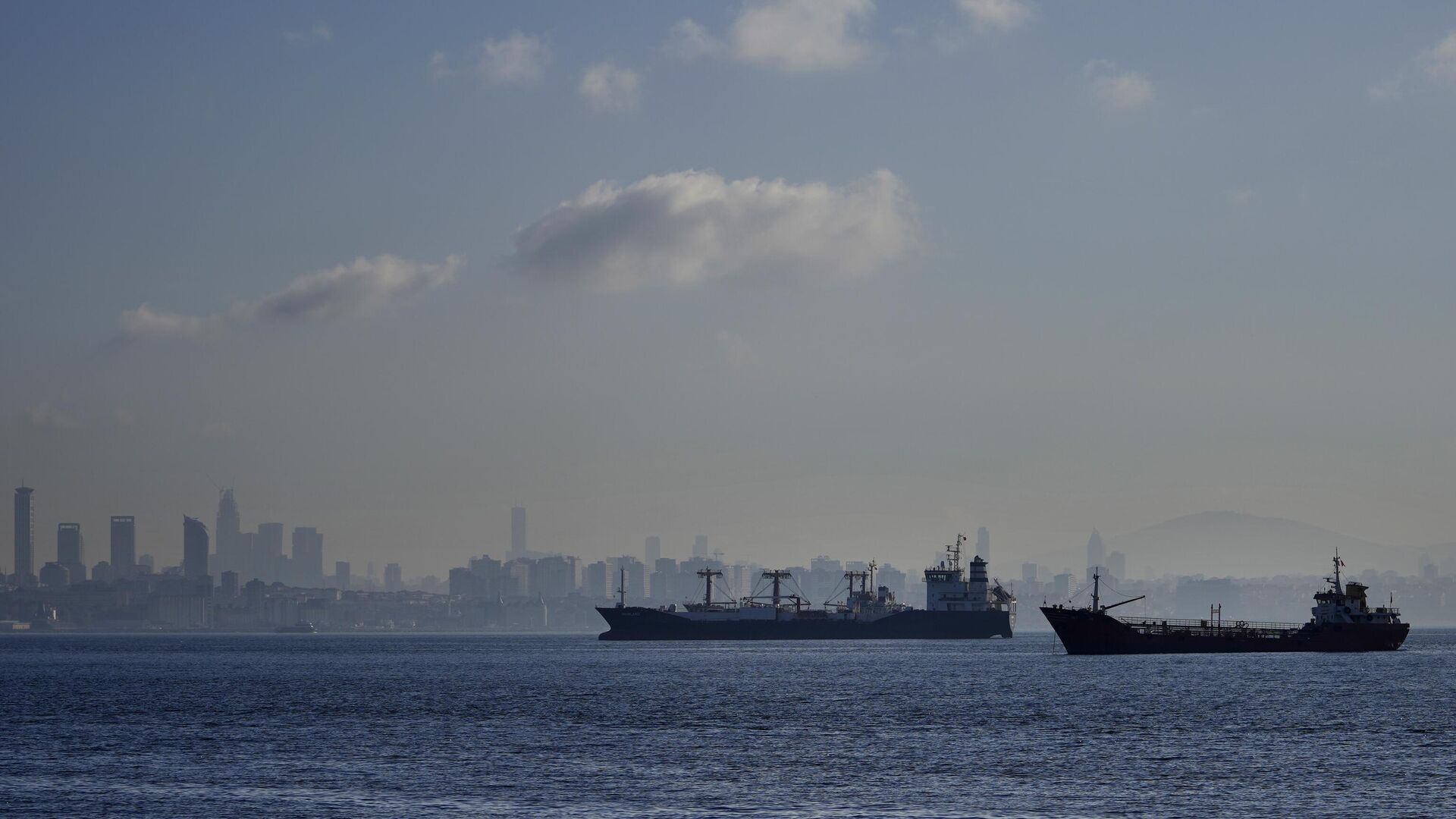https://sputnikglobe.com/20221212/moscow-in-contact-with-african-nations-over-free-of-charge-fertilizer-supplies-deputy-fm-says-1105375010.html
Moscow in Contact With African Nations Over Free-of-Charge Fertilizer Supplies, Deputy FM Says
Moscow in Contact With African Nations Over Free-of-Charge Fertilizer Supplies, Deputy FM Says
Sputnik International
This article is dedicated to the implementation of the UN and Turkish-brokered grain deal that, among other terms, involves the unblocking of exports of Russian agricultural products and fertilizers.
2022-12-12T14:26+0000
2022-12-12T14:26+0000
2022-12-12T14:26+0000
africa
russia
fertilizer
istanbul
turkiye
african union (au)
https://cdn1.img.sputnikglobe.com/img/07e6/0c/0c/1105374863_0:320:3072:2048_1920x0_80_0_0_0600c313678b90e8aaef5ee171995b00.jpg
Moscow has contacted African countries and the African Union about providing fertilizer supplies free of charge, Deputy Foreign Minister Sergei Vershinin told Russian journalists after negotiations with the Turkish side in Istanbul. The grain deal, signed on July 22 by representatives of Russia, Turkey, Ukraine, and the UN, among other things, involves the unblocking of exports of Russian agricultural products and fertilizers. Moscow has repeatedly stressed that this part of the agreement hasn't been carried out. At the same time, the UN has reassured that the restrictions would be lifted. Vershinin underlined that the implementation of the grain deal was one of the main topics of the discussions, saying that it is a "very critical issue."According to him, the first part of the agreement, aimed at providing a humanitarian maritime corridor for ships with food and fertilizer exports from Ukrainian Black Sea ports, "is being implemented well." He stated that the Russian delegation visited the Joint Coordination Center in Istanbul, which is responsible for coordinating the movement of ships, and "took part in the inspection of one of the dry cargo ships, which carries grain from Odessa."Vershinin also emphasized that the grain deal needs to be adjusted, as grain supplies from Ukraine are still not reaching the poorest countries, as was initially agreed.Earlier, Russian President Vladimir Putin said that most of the ships carrying Ukrainian grain had not reached the world's poorest countries, but had wound up in Europe. Putin also expressed his concern that Russian products are not entering global markets as stipulated by the agreement. The grain deal, which had been set to expire on November 18, was extended for another 120 days on November 17.
https://sputnikglobe.com/20221111/russian-food-under-grain-deal-should-not-fall-under-sanctions-algerian-foreign-minister-says-1104019493.html
africa
russia
istanbul
turkiye
Sputnik International
feedback@sputniknews.com
+74956456601
MIA „Rossiya Segodnya“
2022
News
en_EN
Sputnik International
feedback@sputniknews.com
+74956456601
MIA „Rossiya Segodnya“
Sputnik International
feedback@sputniknews.com
+74956456601
MIA „Rossiya Segodnya“
grain deal, fertilizer supply, russia, turkey, un, istanbul
grain deal, fertilizer supply, russia, turkey, un, istanbul
Moscow in Contact With African Nations Over Free-of-Charge Fertilizer Supplies, Deputy FM Says
Fertilizer supplies to African countries were part of the terms agreed on in the Istanbul grain deal signed in July. However, Russia has repeatedly expressed frustration about how this part of the deal has been implemented, as Russian fertilizers have been blocked in European ports for several months.
Moscow has contacted African countries and the African Union about providing fertilizer supplies free of charge, Deputy Foreign Minister Sergei Vershinin told Russian journalists after negotiations with the Turkish side in Istanbul.
“[…] we are ready to donate fertilizers that have been detained in a number of European countries - and we're talking about 260,000 tons here - to countries in need - primarily African countries. To that end we have contacted African nations and the African Union. I'd like to point out that Russia is also ready to provide transport," he said.
The grain deal, signed on July 22 by representatives of Russia, Turkey, Ukraine, and the UN, among other things, involves the unblocking of exports of Russian agricultural products and fertilizers. Moscow has repeatedly stressed that this part of the agreement hasn't been carried out. At the same time, the UN has reassured that the restrictions would be lifted.

11 November 2022, 12:29 GMT
Vershinin underlined that the implementation of the grain deal was one of the main topics of the discussions, saying that it is a "very critical issue."
According to him, the first part of the agreement, aimed at providing a humanitarian maritime corridor for ships with food and fertilizer exports from Ukrainian Black Sea ports, "is being implemented well." He stated that the Russian delegation visited the Joint Coordination Center in Istanbul, which is responsible for coordinating the movement of ships, and "took part in the inspection of one of the dry cargo ships, which carries grain from Odessa."
Vershinin also emphasized that the grain deal needs to be adjusted, as grain supplies from Ukraine are still not reaching the poorest countries, as was initially agreed.
"They are mainly heading to developed countries. We should recall how it all started. The deal signed by four sides was aimed at ensuring food security in the poorest countries in Asia, Africa and Latin America in the first place. Unfortunately, today the figures do not confirm that most of the grain goes to these countries. We assume that adjustments are needed. After all, the initial goal of the efforts […] was to help the poorest countries," he stated.
Earlier, Russian President Vladimir Putin said that most of the ships carrying Ukrainian grain had not reached the world's poorest countries, but had wound up in Europe. Putin also expressed his concern that Russian products are not entering global markets as stipulated by the agreement.
The grain deal, which had been set to expire on November 18, was
extended for another 120 days on November 17.



